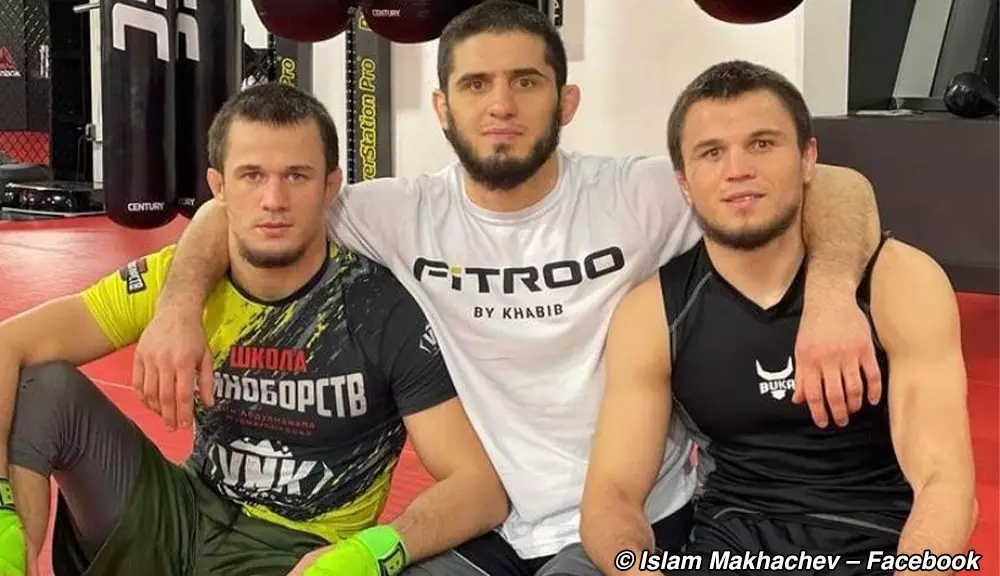The world of mixed martial arts (MMA) is poised for an extraordinary spectacle as the Nurmagomedov clan prepares to make its mark in early 2025. Usman Nurmagomedov, a rising star in Bellator, stands on the precipice of history as he defends his lightweight championship against the undefeated Paul Hughes on January 25. This fight is particularly monumental, as it occurs just a week after his brother, Umar Nurmagomedov, takes his shot at the UFC bantamweight title against Merab Dvalishvili during UFC 311. Alongside this familial rivalry, Islam Makhachev will fight Arman Tsarukyan for the UFC lightweight championship, setting the stage for what many are calling the “Dagestan takeover” in MMA.
The simultaneous title fights among the Nurmagomedov brothers come with their own set of challenges, drastically affecting their training dynamics. Usman, despite being away from the U.S. training camp led by their legendary coach Khabib Nurmagomedov, decided to remain in Dagestan. He faced logistical issues, particularly related to his visa, which ultimately dictated his decision to prioritize local training rather than jetting off to America.
“I considered it, but I had a little problem with my VISA. I got it late, and if I traveled for a short period, I would end up with jet lag and waste valuable time,” Usman expressed. He firmly believes that Dagestan has a wealth of experienced fighters, enabling him to complete his training effectively despite not being physically present with his brothers. This highlights a growing trend in MMA where fighters leverage their surroundings—training in the mountains of Dagestan, known for producing tough, resilient athletes.
Emotional Investment and Team Spirit
While Usman prepares for the pressure of his own fight, he reveals a deeper emotional connection to the upcoming battles of his brothers. “Honestly, I’m more nervous about these guys fighting than my own,” Usman stated candidly. This sentiment shows a profound loyalty and sense of unity among the Nurmagomedov team. It’s not just about personal success for him; it’s about the collective achievement of the team, which underscores the strong familial bonds that are prevalent in Dagestan’s martial arts culture.
Usman’s focus on supporting Umar and Makhachev, alongside another teammate Tagir Ulanbekov, further strengthens the narrative of camaraderie that often gets lost in the fierce individualism typically seen in combat sports. With Khabib Nurmagomedov’s guidance and training, he feels assured of their success, reflecting a spirit of positivity that surrounds their training environment.
Potentially, January 2025 could mark a watershed moment in the Nurmagomedov legacy, positioning them as major players in MMA across multiple organizations simultaneously. “Can you imagine if we start this year with two UFC champions, one PFL champion, one Bellator champion? It would be incredible,” Usman said with palpable excitement.
Not only would this signify personal victories, but it would also raise the profile of Dagestani fighters in the international MMA scene. Their success could attract even more fighters from the region, establishing Dagestan as a hub for MMA talent. The implications of such a rise are profound, as they could lead to increased sponsorship, training opportunities, and more participation in global events.
The Path Forward: A Collective Ascent
The upcoming days promise not just potentially historic victories for the Nurmagomedov brothers but also a significant moment for MMA as a sport. If Usman, Umar, and Makhachev achieve their championship goals, it would symbolize the growing dominance of Dagestani fighters in the international arena. This family’s commitment to each other and their deep-rooted traditions can fuel an unparalleled legacy in MMA, emphasizing that success in this deeply personal sport is enhanced by unity, strategy, and shared aspirations. The world watches in anticipation as they prepare to rewrite the narrative of MMA dominance in 2025.

